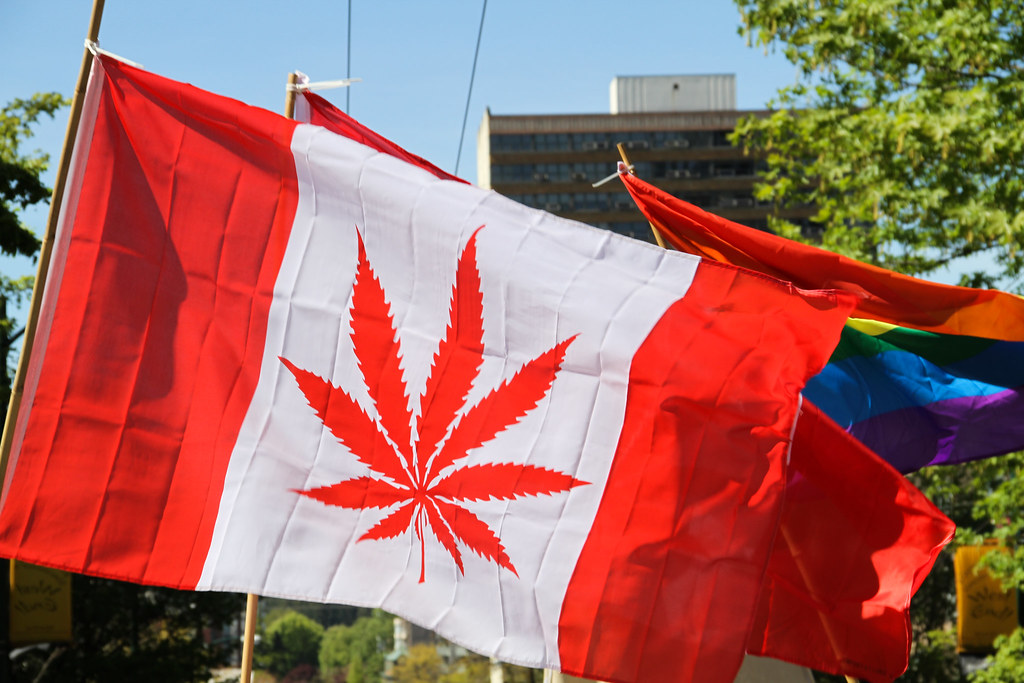Prescription drugs are the leading cause of death https://t.co/BNQALBHd2P
— Lou Ferreira (@LouFerreira9) April 28, 2024
It is called, “NIBIRU”. That’s what the Sumerians called it.
That is because “…the common enemy of humanity is man. In searching for a new enemy to unite us, we came up with the idea that pollution, the threat of global warming, water shortages, famine and the like would fit the bill. All these dangers are caused by human intervention, and it is only through changed attitudes and behavior that they can be overcome. The real enemy then, is humanity itself.”
https://www.sott.net/article/490777-A-Collective-Common-Enemy-Now-Stalks-Mankind
Stephen Karganovic
Strategic Culture Foundation
Sat, 20 Apr 2024

© Rumble.com
Yuval Hariri, Klaus Schwab’s spokesman, recently made a statement that should send chills up everyone’s spine. “If bad comes to worse and the Flood comes,” Harari said, he and the likeminded cabal of shadowy world masters will “build an Ark and leave the rest to drown.”
Elsewhere, Harari elaborates on the reasons for his fellow elitists’ cold-hearted indifference to the fate of the vast majority of Earth’s inhabitants:
“If you go back to the middle of the 20th century …and you think about building the future, then your building materials are those millions of people who are working hard in the factories, in the farms, the soldiers. You need them. You don’t have any kind of future without them.”
What he means is that you – referring to the dominant social and financial elites of that era – still “needed” the labour of millions in the various fields of economic endeavour in order to turn a profit. Since then, how have things changed according to “futurologist” Harari?
“Now, fast forward to the early 21st century when we just don’t need the vast majority of the population, because the future is about developing more and more sophisticated technology, like artificial intelligence [and] bioengineering, most people don’t contribute anything to that, except perhaps for their data, and whatever people are still doing something useful, these technologies increasingly will make them redundant and will make it possible to replace those people.”
Elitist mouthpiece Harari deserves credit for blood-curdling honesty, if not for the morality of his and his masters’ “visions.” He is plainly signalling the view that this writer, the editors of this portal, its readers and the rest of mankind are expendable and apart from whatever economic utility they still might possess are bereft of any inherent dignity or value.
Harari and his immediate superior in the elitist nomenklatura, Klaus Schwab, technically are private individuals. Their organisational vehicle, the World Economic Forum, is a private NGO registered in Switzerland. Formally, they neither represent nor do they speak for any government or official structure with a proper claim to legitimacy. They have no licence to plan or arrange the future of humanity, besides the self-authorisation to do so which they and the oligarchical globalist power centres they commune and mingle with have arrogated to themselves. No one elected or empowered them to plan anybody’s future, other than their own, and even that strictly in their private capacity.
Yet disposing of the future of mankind is precisely what they presume to do, in Davos in plenary session once a year and the rest of the time in conspiratorial confabulation amongst themselves.
The nature of the “planning” in which they engage should be of deep interest and grave concern to everyone. Not just for the unbridled hubris it displays but more pointedly for the homicidal design that underlies it, on a vast and hitherto unimaginable scale which Raphael Lemkin was incapable of conceiving when he coined the term “genocide.”
When and if the predicted “tsunami” to drown mankind occurs, and we may be confident that Harari and his cohorts have the capacity to make it happen at a time and in the manner of their choosing, as the recently fabricated health event has shown, they will not be mourning the victims. On the contrary, they will be delighted at the success of their handiwork. As the bulk of mankind “drowns,” they will gloat.
It is indisputable that Harari speaks not just in his own or Schwab’s name. He is publicly articulating the ideological vision of a depopulated Earth, cleansed of human presence and tinged with occultist misanthropy. That vision is widely shared by the luminaries of his elitist set. A high profile member of that set, Bill Gates, has been insistently stressing the need to dispose of the useless multitudes by any means, fair or foul. One of Gates’ alarmingly explicit elocutions on this subject was removed by YouTube, allegedly for “violating community guidelines.” The real reason for expunging his remarks from the internet was the danger that they could raise an alarm amongst the targeted “flood victims,” provoking them to react with uncontrollable rage once they discovered what the elitist “visionaries” have in store for them.
These psychopathic serial killers (we should not mince words) using their vast financial, political and media (brainwashing) resources are inexorably putting into effect a homicidal global depopulation agenda. Depopulation, as Harari has honestly admitted, means physically eliminating as many human beings as they deem superfluous or useless for their purposes. The concept of population control, again not to mince words, is their code for global genocide.
The Club of Rome, one of the institutional components of the depopulation network, in a programmatic document published in 1974 could not have put the main principle of their genocidal philosophy more starkly: “The Earth has cancer and the cancer is Man.” Is it necessary to clarify that cancers are not nurtured and cultivated? Cancers are to be extirpated.
F. William Engdahl recently shined extraordinary light on the deep roots of the nefarious plan, discussed and implemented openly by its malevolent promoters in plain view of the intended victims. Engdahl has shown that perverts like Schwab and Harari are but public faces of a malevolent trans-generational scheme.
Engdahl quotes from a report issued by the Club of Rome, “The First Global Revolution.” It is admitted there that the CO2 global warming claims, serving as the convenient rationale to forcefully impose upon humanity an endless array of destructive structural changes, are merely an invented ruse.
That is because “…the common enemy of humanity is man. In searching for a new enemy to unite us, we came up with the idea that pollution, the threat of global warming, water shortages, famine and the like would fit the bill. All these dangers are caused by human intervention, and it is only through changed attitudes and behavior that they can be overcome. The real enemy then, is humanity itself.”
“The agenda,” Engdahl sombrely concludes, “is dark, dystopian and meant to eliminate billions of us ‘ordinary humans.'”
An important clarification needs to be made. Humanity is not the enemy but is on the contrary the crown of God’s creation. And it is humanity itself that now is facing an implacable enemy, in this case, a collective incarnation of the defining characteristic Edward Gibbon attributed to the depraved emperors Commodus and Caracalla: “common enemy of mankind.”
This time round, however, humanity is no longer facing the perverse eccentricities of an individual deviant. Today, it must confront Commodus’ and Caracalla’s collective personification, in the form of a depraved global oligarchy, imbued with dangerous delusions of omnipotence and impunity.
Why have we chosen to dwell on this dark subject? In the first place, because the intended genocide victims worldwide are entitled to be informed and naturally they also have the right to self-defence, in order to preserve their own and their families’ lives, as well as to ensure the integrity of their societies, cultures, historical memory, and way of life.
But there is also another important reason, to expose the cynicism and utter amorality of the genocidal fanatics who still are directing the destiny of a considerable portion of mankind and exert their energies continuously to regain complete control over the remainder.
Acting through their proxies Germany and Rwanda, recently joined by France and a few other puppet governments, they had the impudence to submit in the General Assembly of the United Nations a resolution to condemn and memorialise the fabricated “genocide” in Srebrenica, censuring for genocide a nation that throughout the twentieth century has itself been the target for effective extinction.
That is the very crime that they themselves are brazenly plotting to commit, not in some remote Balkan municipality but upon humanity as a whole.
Duh!
Most deaths listed as stemming from “natural” or “unknown” causes can actually be traced back to pharmaceutical poisoning, especially pharmaceuticals that are prescribed for psychiatric ailments.
https://www.naturalnews.com/2024-04-25-leading-cause-death-america-today-pharmaceuticals.html

We often hear from politicians that things like raw milk, guns, the unvaccinated and TikTok need to be banned in order to save We the People from harm, but then why do all of these same people support Big Pharma, the actual leading killer of Americans by a long shot?
Prescription drugs are now the leading cause of death in the United States today, surpassing even heart disease and cancer. And within that category, psychiatric drugs specifically take third place as the top killer.
Pharmaceutical drugs are supposed to be “medicine,” or so we are told, and yet they continue to top the charts as the most prolific life-enders in American society. Why are we putting up with this?
Peter C. Gøtzsche, writing for the Brownstone Institute, looked at a consortium of research on this subject. His findings point to serious problems with the legal drug industry as regulated by the U.S. Food and Drug Administration (FDA).
Believe it or not, legal drugs as approved by the FDA and prescribed by doctors are one of the top killers of Americans. This means that doctors are technically the leading cause of death in America, making them more dangerous than criminals.
Keep in mind that the studies Gøtzsche looked at are all antiquated. There is simply not that much up-to-date information about this subject, likely because it would expose the drug industry as the death racket that it is.
(Related: Did you know that the pharmaceutical industry rebrands failed pharmaceutical products to generate new profit streams?)
Deaths from “natural causes” are usually caused by pharmaceuticals
Another interesting little tidbit dredged up by Gøtzsche involves hospital records and coroners’ reports, which are routinely manipulated to cover up the pharmaceutical drug death pandemic.
Most deaths listed as stemming from “natural” or “unknown” causes can actually be traced back to pharmaceutical poisoning, especially pharmaceuticals that are prescribed for psychiatric ailments.
“Even when young patients with schizophrenia suddenly drop dead, it is called natural death,” Gøtzsche writes. “But it is not natural to die young and it is well known that neuroleptics can cause lethal heart arrhythmias.”
“Many people die from the drugs they take without raising any suspicion that it could be an adverse drug effect. Depression drugs kill many people, mainly among the elderly, because they can cause orthostatic hypotension, sedation, confusion and dizziness. The drugs double the risk of falls and hip fractures in a dose-dependent manner, and within one year after a hip fracture, about one-fifth of the patients will have died. As elderly people often fall anyway, it is not possible to know if such deaths are drug deaths.”
Another common cause of death in America is non-steroidal anti-inflammatory drugs (NSAIDs), which are sold over the counter at drug and grocery stores all across the country.
“They have killed hundreds of thousands of people, mainly through heart attacks and bleeding stomach ulcers, but these deaths are unlikely to be coded as adverse drug reactions, as such deaths also occur in patients who do not take the drugs,” Gøtzsche adds.
A 1998 meta-analysis based out of the U.S. estimated that at least 106,000 patients die every year in hospitals due to adverse effects from NSAIDs and other drugs. One can imagine how much higher that number is today with many more drugs now on the market.
Back in 1998, it was rare for the average person to take pharmaceutical drugs of any kind. Today, pharmaceutical drug usage is so common that all newborns, as of 2019, are now expected to take prescription drugs for roughly half their lives.
The latest news about Big Pharma can be found at BadMedicine.news.
Sources for this article include:












